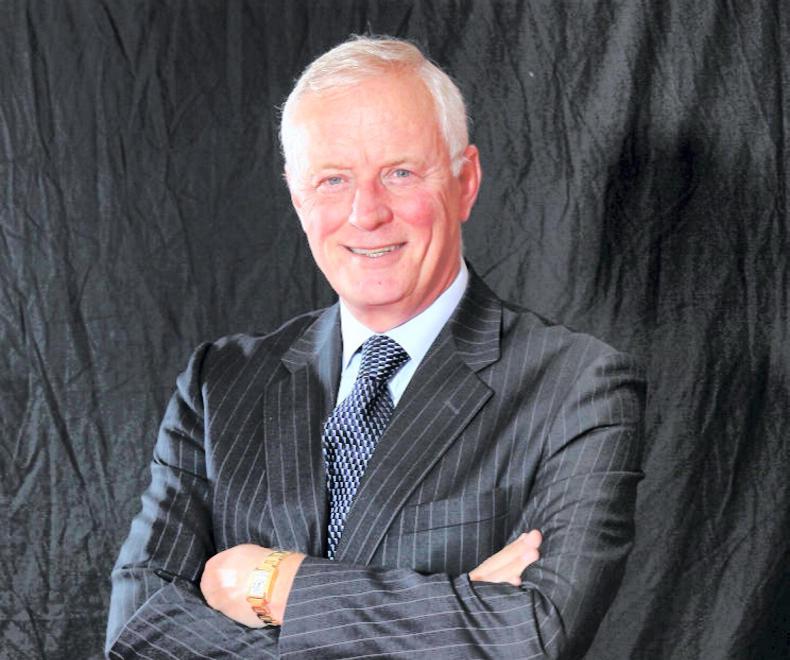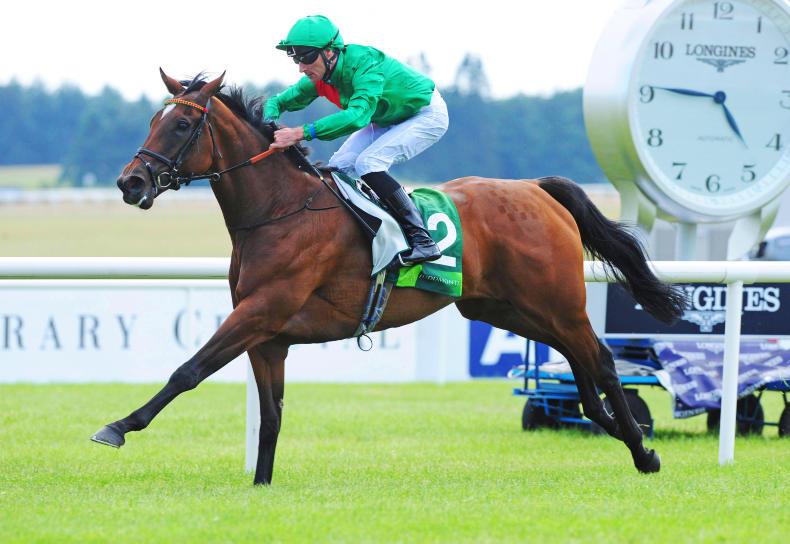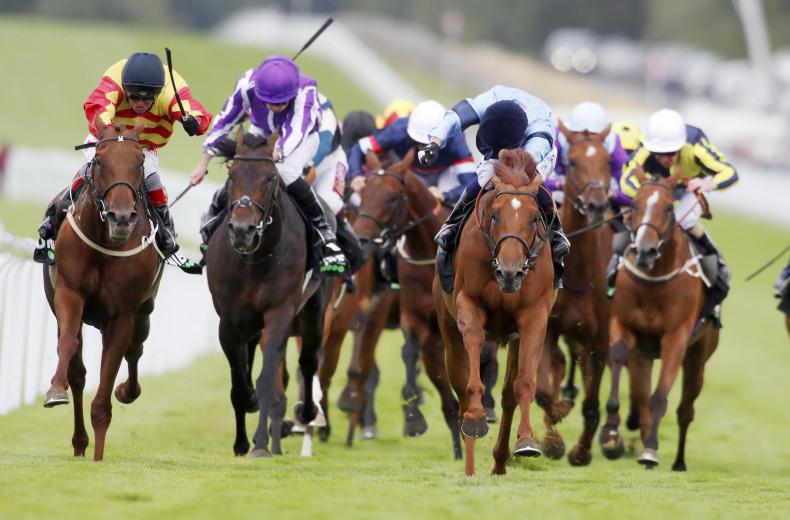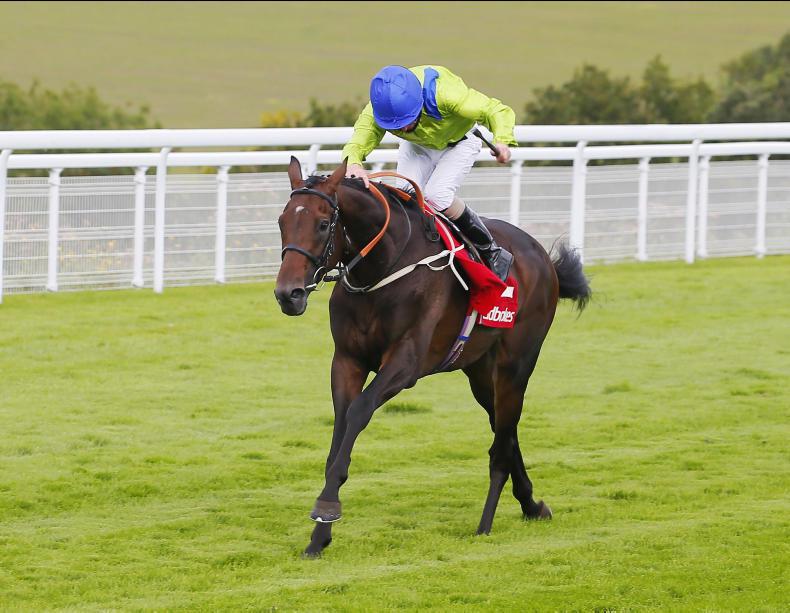2.48pm Sunday
ARRIVE at the Natural History Museum in London. Admission is free, although a £5 donation is suggested. The place is packed and what stands out is the children, marvelling at volcanoes, blue whales and dinosaurs.
Apart from the exhibitions, there are countless interactive stations pertaining to the Earth’s tectonic plates or determining whether an animal is a mammal or a dinosaur and more. The shrieks of delight when the right button has been pressed attest to the investment of the young minds.
Meanwhile, the souvenir shop is wedged and there is barely a seat to be a found in the café. The cash registers are humming.
10.41am Monday
I arrive at Mascalls mansion, headquarters of Matchroom Sport on leafy Mascalls Lane between Brentwood and Great Wharley, little more than a half-hour away from London’s East End.
There I meet founder and chair Barry Hearn, the 71-year-old former chartered accountant who discovered Steve Davis and transformed snooker before branching out to boxing.
Darts may be his greatest success story, remodelled to a vastly profitable business with global reach that sustains careers for a significant number of its participants, having long been consigned to smoky backrooms and dismissed as not even being sport.
Ten-pin bowling, poker, table tennis, netball and gymnastics are among the other pursuits that Matchroom has invigorated. Fish’O’Mania, a fishing event televised by Sky, with £50,000 going to the winner, has been going 20 years now.
Hearn’s wife Susan runs Mascalls Stud, where she bred last year’s Group 1 Pretty Polly Stakes victor Urban Fox and the Group 3-winning, St Leger runner-up Sir Ron Priestley.
For the second year in a row they will have bred a St Leger runner as Goodwood winner Subjectivist takes his chance at Doncaster on Saturday. The pair also have horses in training.
A.P. McCoy has said Hearn is the man to run racing in Britain, to cut through the swathes of vested interest, make decisions that would bring the sport to the masses and make it a viable business for more than a handful.
Of course as a self-made multi-millionaire, he would only do it if the business opportunity were there for his company, but thankfully, he offers his opinions for free.
“TV rights and linear rights are declining globally because of the pressure they are under from digital buyers. People like DAZN, who we work with. Len Blavatnik, who is the richest man in England, is paying top dollar to get top sports globally. Horse racing should be up there but you need to improve the profile to get on their wavelength. At the moment it feels like a little in-house club in the world of sport. It needs to be out there.
“It comes down to management and the management teams and the infrastructure of sport.”
You couldn’t call this an interview. Hearn is a smiling force of nature, he knows what we’re here for and sets off. To justify my trip to meet him, I apologetically halt his gallop just a few times to point him in another direction.
“You have to have leadership in any industry, in any business. That leadership has to have power… Because of the costs involved, in anyone’s language, racing has got to be viewed as a business but there are too many barriers to entry.

Subjectivist and Joe Fanning wins the Ladbrokes March Stakes (Group 3) at Goodwood /Healy Racing.
Old money
“It can’t be an industry purely dependent on old money. Old money means old mistakes are still being made. New money is entrepreneurial money that looks for a return on investment and obviously as a passion but only the same type of passion that I might have for snooker and darts and things like that. I don’t play snooker and darts, but I have a passion.
“Horse racing is a very old industry. You can go back to medieval times. In the same way you can go back with darts centuries and centuries ago with archers who used to break their arrows in two, go into the ale house and they would throw the broken arrows at targets. Everything is historic. It doesn’t mean you have to do it is the same way.
“The danger is barriers to entry. There has been some movements and syndicates have been a very good move. They involve more people that wouldn’t have done it without a syndicate formation. But the downside is no one makes money. In today’s brutal world that is a falling point that eventually creates a ‘them and us’.
“The grassroots level is actually the bedrock of the racing industry.
“When I took over the darts in 2003, from the point of view of wanting to watch the best versus the best it has to be competitive sport. Clearly you had to open the doors to other people and the only way to do that was to increase the prize money for people to earn a proper living by being a dart player.

“Opening that door suddenly made averages go up 10 points a throw. They were full-time players. Suddenly they got very good. Because of the environment they created their own persona. We helped with that, with their walk-on music, dress like this, various little things… with the thoughts of, ‘how do we take this sport to the next level?’
“The 21st century is social media is digital platforms, enhancing the value of your brand. Creating money through the opportunities where there were previously none and that is the age we are in now.”

St Leger runner-up, Sir Ron Priestley (red/yellow) was also bred at Mascalls Stud \ Healy Racing
Racing
“I don’t know anything about horses but I do know about sport, I know how to enhance and create. If you take the darts, first thing’s first, (I thought) ‘there isn’t enough events to call it a living’. You can’t do it part-time. You are either in it or you are not. I did it with snooker as well.
“Create lots of events. Don’t really care about prize money [at the start]. Keep them busy. Give them a reason to go to work. If I take that with horse racing, there is X number of thousand horses in training. Training fees are getting more and more expensive and yet too many times a trainer will turn around and say there is nothing for your horse for the next couple of weeks.
“Why not? I have a horse that wants to run, I have owners that want to watch it. I have punters that want to bet on it. Have we got enough horseracing?
“You need more races. You need to generate more income. If you can value it per race basis then leave out the big races, the classics.
“Do it in classifications; majors, intermediaries, minors. Don’t make a difference because it is all volume. The business is about volume.
“Why should a small trainer in Ireland be getting up at 4am, knocking his cods out all day? Going home with a backache. He puts up with that because he loves it and he wouldn’t want to change. But you have to give him something. Give him a light at the end of the tunnel that there isn’t a train coming towards him.”
“I wouldn’t make it too easy. All sports are about excellence at a certain level. The system in place is not too bad where you have your 0-60 and all that. But there is not enough of it. I don’t understand it. If I am owning a track. Simple mathematics.
The inability of the majority to make money is where the industry falls down, he insists.
“Why aren’t there 10 races instead or six or seven. What is the obstacle? We have got to come up with 10 lots of prize money. There shouldn’t be a race for less than £10,000 prize money anywhere.
“The argument against that would be, when you go to a horse racing track, there is 500 people there. My answer would be, make that track more attractive. Think outside the box. When I started doing darts we had 800 people at the Circus Tavern. Today, on the first day I went on sale for the World Darts Championship I sold 75,000 tickets.”
The majority of coverage of Irish racing is behind a paywall, apart from select fixtures covered by RTÉ and TG4. The Professional Darts Corporation’s most significant deal is with Sky Sports but it is not the only lucrative one. What’s more, they have their own channel, just as Dermot Cantillon (Naas Racecourse, Forenaughts Stud, Tinnakill House) suggested racing should have on this forum last year.
“The first thing with the darts was create lots of opportunity. The second thing was, now we have all of this traction and activity, how do we commercialise it? How do we monetise it? Instead of just producing programmes for Sky, what about the rest of the world? My first deal was Sky New Zealand, $30,000 they gave me. Today it’s 10s of millions. We have now gone to No 2 in Europe in terms of televised sports behind soccer. It just shows you are only limited by your own imagination. You have got to adopt that in all sports, including horse racing. Pay-per-view is a huge part of the success story but you don’t put all of your eggs in one basket. Racing have done a pretty good job with ITV. We do it with darts. We have six events on ITV, one event on BBC and then big ones for the big money on Sky.
Packages
“What you do is you have got to cut your packages accordingly. When I go to ITV they won’t pay me as much as Sky but they will reach a wider audience. It is a balancing act. You don’t go 100% behind one of them. You’d cut of your nose to spite your face. But it is also part of maximising because your sponsorship levels will be higher on free-to-air.
“In the end we have over 100 darts events now but not very many on telly. The commercial deals you do are so specialised. You do have to know what you are doing. I’m sure racing are getting it together. But there is lots of different strands rather that one big one. There’s no doubt that horse racing has got more value than the racing industry are currently getting.
“When you look at your exploitation you look at your free-to-air broadcasters for the reasons we have seen because you need that profile, sponsorship, mass appeal. You also need that to drive into the digital networks. We started PDC TV. PDC TV gives you benefit. You get your first crack at the tickets before they go on general sale. You get to watch all these pro tours and European tours that are not available anywhere else.
“If you want to sign up with a bookmaker you can watch the same thing but you have to have a bookmakers account. Or you can pay £80 or £90 a year, and you get the whole thing.
“With racing, there should be something which you can control your own destiny on. You take that feed and make it much more interesting. Not just have races, you have the features and start building personalities.
Proper racing
“Then you go to the overseas market and you say, ‘we create proper racing packages.’
“They do a bit of it already but the market is huge and the money out there is humongous if you get it right. It’s not a question of giving it away for exposure anymore.
“Those old days are gone. Everything has got to pay their way.
“We have dozens and dozens of social media experts, videographers, people who can tell a story. Racing have just started getting a little bit better on their social media but they don’t do anywhere near enough. You should be flooding this market, building personalities.”
The key to boosting attendances is entertainment Hearn argues.
“My thing with racing is how often do they listen to their target? The easy answer is ‘let’s go and get Elton John.’ We don’t make any money out of it but we drive a lot of people in. That is a really good start. Now, what did you get from those people? How did you follow it up?
“You have got to do lots of different things. You can’t do a band every week, can’t afford it. You have got to think outside the box. Sometimes you have got to accept a quiet night. There is going to be times when you cut your cloth accordingly.
“Customer experience, can you improve it? Can you improve the food? Can you make a reason to go? Sometimes you can’t. You have to accept it. Then you have your big ones where you have it off. You have to look at target audience. The target audience is declining so you have got to look at new audience. New things to bring that audience in. Maybe every now and again, totally free, just come. But you have to analyse. Work from data. I want to know how many people go to a racetrack, what the cost of entry was, and what did they spend?”
Some will argue that free entry devalues the product. [The Curragh opened their doors for free entry for their last two meetings of the year].
“That museum you mentioned, how many of those people go back again on another occasion and pay? Or you just broaden your audience? You have got to experiment. You have got to have guts and flavour. Let’s make this thing work. Let’s get them in.”
Drinking crowds
The notion of attracting drinking crowds to racing puts a lot of the traditional racegoers off. Images of fighting particularly on British tracks are certainly off-putting, particularly if thinking about presenting racing as a family friendly pursuit, where you can bring the children.
“It is customer experience. There is 170 security at Alexandra Palace, half in plain clothes, there is CCTV everywhere. You go one step out of line and you are out the door. Zero tolerance, it is your brand value. You want to have the benefit of that 60% profit margin on your margin. The price of that is to make sure the bloke don’t spill his drink over everyone, or they don’t get carried away because certain people can’t handle it. I don’t care if someone has one pint a night as long as they are having a good time.
“In Dublin (last) week, there were 10-to-12-year-old kids with their Dads in a separate areas, separate security, nowhere near the others. The kids painted their faces and they have gone home and they have gone, ‘Dad, for Christmas can you buy me a dart board?’ Game, set and match.
“But you must spend more and have enough security.”
Snob value
Hearn doesn’t accept the excuses offered for the disparity in potential income between owners and breeders in Hong Kong and France, and in Britain.
“It’s so easy to put right if you have got your commercials in line. There seems to be a little bit of a snob value in horses, the higher echelons are not that interested in the lower-grade racing. It is the bread and butter.
“Two donkeys make a great race. It is close and exciting but also it is a betting opportunity. Also it is an opportunity for people to make money. How many tens of thousands of people are employed in the racing industry? These small yards need to survive because if they don’t they are losing people’s jobs.
“With my darts’ hat on I say, ‘I am getting so much a match, let’s do more matches.’ It’s not rocket science. The best example of this is The Shootout that is on Eurosport. 128 snooker players, maximum 10 minutes (a match). The purists don’t like it but the kids love it. You can have a bet and who knows who is going to win?
It is the toss of a coin but what it meant was, instead of a standard tournament, I produced 127 games in two days and got paid for 127 games. It is probably one of my biggest earners but it is one of the smallest (competitions in status). It is just thinking smart.”
The inability of the majority to make money is where the industry falls down, he insists.

Urban Fox, bred by Susan Hearn, winning the Group 1 Juddmonte Pretty Polly Stakes \ Healy Racing
“A simple move to encourage those people to remain in the industry is to adopt a French system of saying 10% of the prize money, roughly speaking, goes to the breeder.
"We were at Goodwood and Urban Fox was running. We were obviously chest out and then they came in with all the banners and jockey colours. Urban Fox trained by William Haggas, jockey Danny Tudhope. My wife pulled the woman over and said, ‘Are you taking the piss? Why doesn’t it go the breeder at the bottom?’”
Recognition
“The money is one thing but when you are passionate about something the recognition is huge. To be fair, they changed it and put the breeder on. They sent us a little memento. It was a very small thing to recognise. But if you are trying to recognise and reinvest in this sport and encourage these people, when Sir Ron Priestley got second in the Leger, how nice would it have been to get a nice £10,000 cheque in the morning? It wouldn’t change the needle but inspires you to think, ‘I am being recognised and respected. Maybe it is worth getting bigger and doing better’.
“That barrier to entry exists in racing. It exists in racing because of the costs of operation to an ordinary person. If you are a landed gentry, Coolmore or the Arabs there are no costs. But then you have an industry that specialises only in the top end. You need to get that activity… Rockefeller said, ‘if everyone finishes the discussion with some bread in their mouth then that’s the good thing’.”
We are unlikely to see the day that punters will sing Deadly Donnacha O’Brien to the tune of Seven Nation Army, á la the raucous reaction to Michael van Gerwen’s entrance at the Ally Pally or Citywest. But inclusivity, opportunity and a good time need to be part of the package.
Merchant bankers
“Someone said to me years ago at a lunch in Newmarket, ‘if you can’t afford to spend this money you shouldn’t be in horse racing.’ I found that terribly negative. If you look at the darts we have Prince Harry there, Zara Phillips, top merchant bankers and they are sitting alongside dockers, car mechanics, office workers. They are all having a f****** good time.
“The elitist has to go. Volume is not pretty necessarily, but volume is the key word.
“You need more activity. You need more entertainment. You need more personalities. You need bulk and to do that you need people who are intelligent and capable enough.”
Food for thought indeed.


 This is a subscriber-only article
This is a subscriber-only article
 It looks like you're browsing in private mode
It looks like you're browsing in private mode









SHARING OPTIONS: